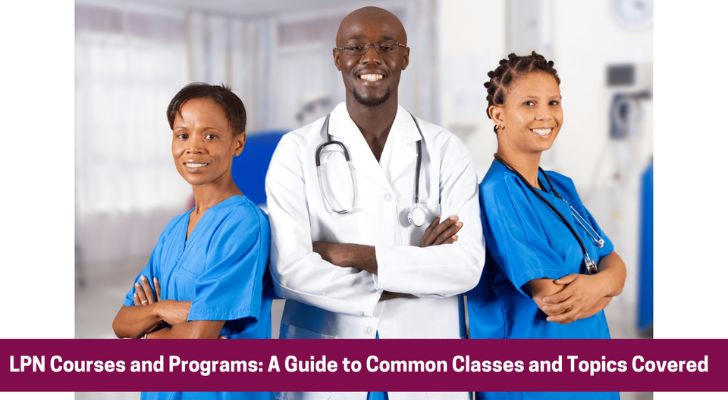💡 Change Careers Without Starting Over – LPN Training You Can Do While Working
Looking to enter the healthcare field without spending years in school? Licensed Practical Nurse (LPN) training may offer the balanced, achievable path you’re searching for. With flexible formats and a growing demand for trained professionals, LPN programs help working adults, career changers, and aspiring caregivers develop job-ready nursing skills—often in under a year.
LPNs play a critical role in patient care. They support doctors and Registered Nurses (RNs) by monitoring patients, administering medications, and assisting with daily health needs. If you value helping others, working in structured settings, and making a visible impact, this career is worth considering.
What Is LPN Training?
LPN training programs prepare students to take on frontline patient care responsibilities in hospitals, nursing homes, and home healthcare settings. The goal is to equip learners with foundational medical knowledge, clinical skills, and ethical standards needed to pass the NCLEX-PN exam and qualify for state licensure.
Most LPN programs combine online theory modules with in-person clinical hours at local healthcare facilities. This format allows students to build both academic understanding and practical experience.
Key Learning Areas in LPN Programs
While curriculum may vary slightly across schools, most LPN programs focus on core subjects that reflect real-world healthcare demands. Topics typically include:
Human Anatomy & Physiology
Learn how the body’s systems function and interact, from muscles and nerves to organs and fluids.Pharmacology and Medication Administration
Understand drug classifications, safe administration methods, dosage calculations, and monitoring for side effects.Foundations of Practical Nursing
Covers hygiene, infection control, documentation, patient communication, and basic procedures.Mental Health and Geriatric Care
Specialize in care for elderly and vulnerable populations, including emotional support and chronic condition management.Ethics and Legal Responsibilities
Explore nursing ethics, patient privacy laws (e.g., HIPAA), and regulatory guidelines.Clinical Practice
Gain hands-on experience in real healthcare settings under the supervision of licensed professionals.
Programs are designed to prepare students for NCLEX-PN testing, which is required to become licensed and begin practicing as an LPN.
Flexible Formats for Working Adults
Many LPN training programs now offer online or hybrid learning options, making them more accessible to adult learners, parents, and those with current jobs.
Advantages of flexible learning include:
- Self-paced courses: Study modules when it fits your schedule
- Local clinical rotations: Complete hands-on practice close to home
- Evening or weekend classes: Some programs adjust for shift workers
- Digital support: Access to online resources, instructors, and peer discussion boards
This flexibility means you can pursue a new career without stepping away from your current responsibilities.

Program Duration and Structure
LPN programs are typically designed to be completed in 9 to 15 months, depending on the schedule and state requirements.
Here’s what a general program timeline might look like:
| Phase | Duration | Format |
|---|---|---|
| Introductory Coursework | 4–6 weeks | Online modules |
| Core Nursing Courses | 3–5 months | Mix of online and in-person labs |
| Clinical Rotations | 2–4 months | Local facility placement |
| NCLEX-PN Prep | 2–4 weeks | Test strategies and reviews |
Some programs offer part-time options for those needing longer timelines due to work or family commitments.
Who Should Consider LPN Training?
LPN programs attract a wide range of learners. You might consider this path if you:
- Enjoy helping people in direct, meaningful ways
- Are transitioning from non-medical fields and seeking job stability
- Want to start in healthcare and later pursue further education (e.g., RN bridge programs)
- Are looking for a respected role without the cost or duration of a traditional degree
Common student profiles include:
- Parents balancing family with career advancement
- Veterans re-entering civilian life
- Customer service or retail workers looking for more purposeful work
- Medical assistants seeking clinical credentials and growth
What Comes After Graduation?
Upon successful completion of an LPN program and the NCLEX-PN, you become eligible for licensure. With this license, LPNs can pursue roles in settings such as:
- Hospitals – Support staff in emergency rooms, surgical units, or long-term care wings
- Nursing homes – Assist elderly patients with daily needs and chronic conditions
- Home healthcare – Provide care in clients’ homes with flexible schedules
- Clinics and urgent care centers – Help doctors and nurse practitioners deliver efficient outpatient services
- Rehabilitation facilities – Assist in recovery programs for injuries or post-surgical care
Some LPNs choose to further specialize or enroll in LPN-to-RN bridge programs, continuing their education while working.
Enrollment Steps: How to Get Started
Research Accredited Programs
Look for LPN training from institutions approved by your state’s nursing board or national accrediting bodies.Check Admission Requirements
Most schools require a high school diploma or GED and completion of a background check and basic health screening.Apply and Submit Documents
Applications may include essays, transcripts, identification, and immunization records.Plan Your Schedule
Talk with an advisor about online vs. hybrid formats, clinical location options, and part-time study paths if needed.Begin Training and Stay Consistent
Success in LPN programs comes from consistency, engagement, and strong study habits—especially during clinical phases.

Final Thoughts
LPN training offers a smart, focused way to begin a healthcare career that’s both meaningful and adaptable. With flexible learning options, practical skills development, and the opportunity to make a difference in people’s lives, becoming a Licensed Practical Nurse in 2025 is more accessible than ever.
If you're ready to turn compassion into a career, LPN training could be your first step into the fast-growing world of healthcare.
